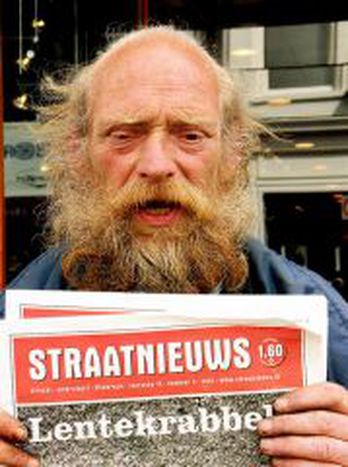
Starving in Brussels
Published on
An Analysis by Waldo Vanderhaeghen The past months many angry workers voiced their discontent with workers from other European countries ‘stealing’ their jobs. The economic crisis is taking its toll on employment and public opinion. However understandable this opinion is, policy makers should not give in to impulsive reactions.
The migrant worker is also a human being, also adds economic value and migrants have become citizens, part of, and contributing to, Europe’s societies. A report from Brussels ‘down-under’, a city flooded with European migrant workers but benefiting the most from them.
11 ‘o clock in the evening, Brussels, capital of Europe. I am in my local night shop buying some fruit when a shabby-looking man enters. He says in a loud voice that he wants to buy an apple, putting it on the counter, but that the orange in his other hand was already his. The shopkeeper had seen him on cctv taking the orange from the shop’s outside shelves. the poor man initially denied the theft, but eventually admitted: he had no money and had stolen to eat
Brussels – migration and poverty
It is a tragic story in Europe’s capital, where this January 19,9 percent of the workforce was unemployed, 1.2 percent higher than in December. The economic crisis stings. Paradoxically, Brussels is the third richest region of the EU, with a BBP/person of €53.381, twice the European average. It is also home to one of the largest foreign born populations in Europe. About 46 percent of its one million large population is foreign-born, 55 percent of which is European.
The map below provides you with real insight in the human map of Brussels. Similar data on rent prices, residence place of foreigners, age,... can be downloaded here, more info on Belgeoblog.be. The next map singles out unemployment. The red areas have about 37-56 percent unemployed, while the hazy white are better off.
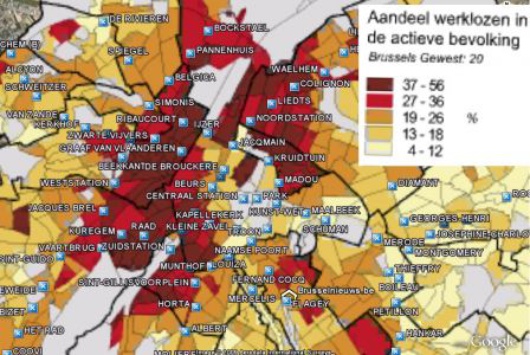
White, rich, regions coincide with the residence place of the migrants from North-West Europe, United States, Japan and Oceania; while the red, poorer, areas are almost a watermark of the living place of migrants coming from Italy, Spain, Portugal, Greece, Turkey and Morocco. It is clear that migration is interlinked with poverty and other socio-economic indicators.
Migration in the European Union
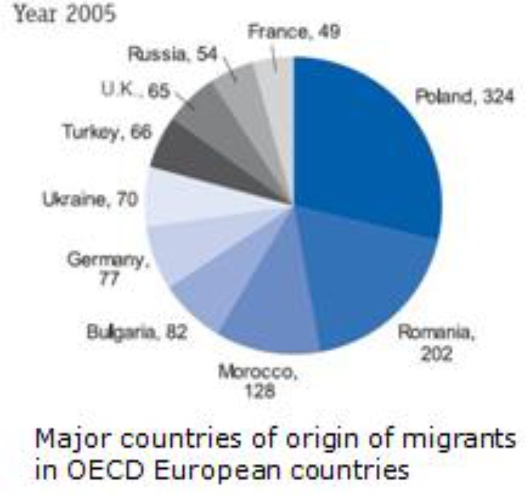 Looking at the more global picture, Europe’s migrating population amounts to 42 millions of which one third, or 14 millions of which are EU citizens migrating to another member state. On country level the foreign-born population thus represents between 7 and 15 per cent of the total population in most western European countries. Click here for data on your country.
Looking at the more global picture, Europe’s migrating population amounts to 42 millions of which one third, or 14 millions of which are EU citizens migrating to another member state. On country level the foreign-born population thus represents between 7 and 15 per cent of the total population in most western European countries. Click here for data on your country.
Although protests against migrant workers are more frequent, European migrants were very valued by the host countries up until recently. A Commission report demonstrates that migration from new to old member states has had “a clearly positive impact on economic growth” with Eastern European migrant workers hailed to boost EU GDP by 0.28%. With European economies facing a dip, some are tempted to limit the free movement of workers in the EU. However, this would be a counterproductive, destructive and immoral decision
I am a migrant, you are a migrant, we are all migrants
Let us look at European mobility in practice. In my neighbourhood a new snack bar recently opened up. Not just any snack bar, it brings something new to us: falafels. Mr Shawkat exchanged Amsterdam for Brussels as he noticed that we in Brussels barely know or eat falafels. This migrating European brought something new with him. There are many other stories like this.
Europeans on the move do not only add economic value, they have more to offer. A migrant is a human being looking for a better life, changing homes to chase his or her dreams. He can be Romanian looking for a chance to work, an electro fan from Portugal keen on Berlin dancing or a rich British hedge fund manager longing for the simple life in an Italian vineyard. Migrants also bring a lot to our societies as citizens. They compensate for demographic deficits, pay taxes,will help in subsidizing our elderly in a few years and enrich our diverse societies. It is also not a coincidence that one of the icons of our time, Barack Obama, is born from a migrant family. Our 21st century world is a new world; people are becoming nomads again on a constant quest for happiness or freedom. 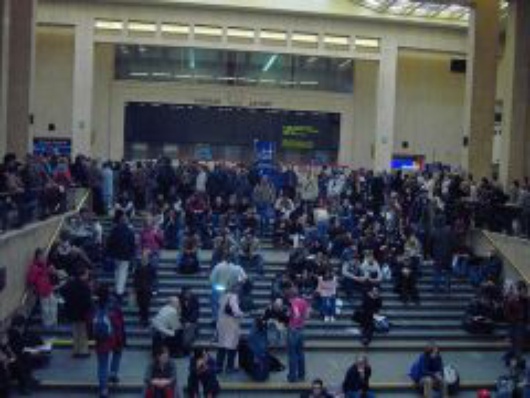
But... there is a big but. In Europe we believe that success and happiness of individuals depends on an enabling society. Emile Durkheim noticed already in 1897 that the number of suicides depends on an individual’s integration in society. Europe believes in social cohesion and also has to give that to migrating Europeans. In these hard economic times, they need a hand or they will fall, and only few benefit from that.
Providing opportunities to fellow Europeans
2009 is shaping up as a year of recession and retreat of the global economy. However, not everybody will be hit as bad. Success stories are found where there is a solid social security system, proactive government policies and when an individual scores high on skills, education and relations. This last point will make 2009 hard for our migrating fellow Europeans. First of all they will lose employment faster as they work in sectors hit harder by the economic downturn, on average have lower skills and education and have less of a social network in the host country to fall back on. Secondly the growth of informal economies in times of crisis will fuel exploitation of migrants. And finally, the public perception of migrants is likely to worsen.
However, in the Brussels area f.e., 1000s of businesses still need new workers. The Transatlantic Council on Migration rightly notes that “the global economic contraction has not put a pause on the competitive pressures unleashed in an ever-more globalized world”.
Labour law
The tide of public sentiment is rising against welcoming policies. The European Trade Union Confederation (ETUC) blames Europe by saying that the principle of equal labour rights and equal pay for equal work has been damaged by European Court of Justice rulings in recent years.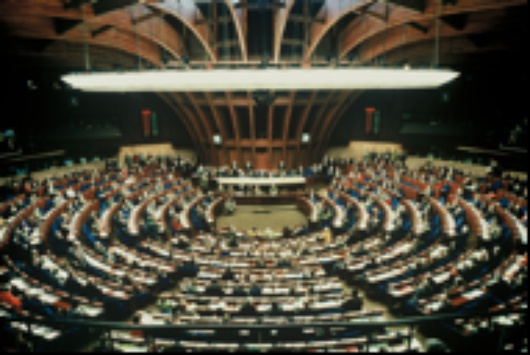
Has the European social model really been damaged and, if so, is Europe to blame for it? Social policy in this field is a national competence according to the European Commission, asthere is no uniform ‘European social model’. The European posted workers directive provides that European migrants have to abide by the host country’s labour laws. If Member States find that foreign European workers are working too cheaply, they should lift minimum wage and improve controls on existing labour laws.
Hey you! What do you think?
Do you think too many migrants work for too little in even worse working conditions in your country? Blame your country’s politicians. Demand more government controls of labour sites and their respect for labour law, and higher minimum wages for all workers. However, be careful in uttering slogans such as “British jobs for British workers”, because you might be hit first with higher prices for garbage collection, difficulties in planning business trips abroad or troubles in finding a job in your own country as your Romanian boss or French customers are no longer there.
Poverty will strike Europe, unemployment will rise and emotions will probably turn against migrants. Policy makers should be open to the grievances, but act rational, non-protectionist and provide sufficient social protection in these economic grim times. European migrants are here to stay, mobility in Europe is a fact and we all benefit from it. The only question that remains is how you welcome them. Do you make the life of our fellow Europeans difficult, thus increasing poverty, criminality and misery? Or do you enable their dreams, facilitating their integration as as citizens, workers and human beings.



